Worknesh Degefa Wants To Run, Not Be Political Flag Bearer
Worknesh Degefa Wants To Run, Not Be Political Flag Bearer
In the aftermath of Lilesa Desisa's Rio Olympic protest, political intersection with athletics in Ethiopia is becoming more commonplace. But many athletes like Worknesh Degefa just want to run.
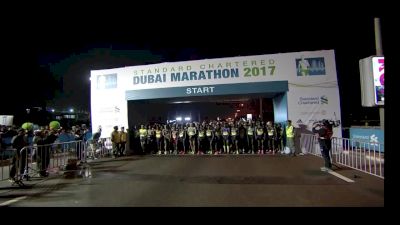
OLOMOUC, Czech Republic -- Worknesh Degefa recalls being awash in a state of practical delirium the moment she broke the finish line tape at the Standard Chartered Dubai Marathon in January.
There was the obvious physical exhaustion and pain that came from pounding the tarmac for two hours, 22 minutes and 36 seconds over 42-plus kilometers under the blistering rise of the emirate sun. Her maiden victory, and the life-changing $200,000 USD winner's purse that accompanied it, left her equally overcome emotionally.
And there was the cacophony of exaltation that rained down from the thousands of Ethiopian fans who assembled in the risers to the left of the finish hours before the start and remained colorfully boisterous throughout.
After congratulating compatriots Shure Demise and Yebrgual Melese, the chants of "Guro Woshebaye!" grew louder and louder. It was a hero's welcome unlike Degefa had ever experienced.
"I was so very happy," Degefa recalled here ahead of the Mattoni Olomouc Half Marathon. "Everything was good. It was the No. 1 post-race feeling for me."
But the greatest moment of the 26-year-old's life was about to get complicated.
As she reveled in the adoration of the crowd, Degefa was tossed an Ethiopian flag to celebrate with during her lap of honor, a customary occurrence at every major athletics competition from the track to the roads. She picked up the flag, raised it over her head and kissed it twice.
Moments later, another flag was tossed out of the stands landing at her feet. This flag had just bars of the country colors: red, yellow, and green. Unadorned at the center was the constitutional yellow star inside a blue circle.
When she picked it up, a portion of the crowd erupted in delight.
The current Ethiopian flag was introduced by the ruling Ethiopian People's Revolutionary Democratic Party in 1996 as the country moved toward establishing a federal system of government organized along ethno-linguistic lines. The star was added to the flag as a symbol of ethnic and religious diversity. Some nationalists, however, renounced the change and the older, non-starred flag became an emblem of a bygone era and symbol of protest.
Upon unfurling and noticing that it was a "resistance" flag, Degefa dropped it back on the ground beside her without hesitation while maintaining hold of the official flag she had first grabbed.
"The flag with no star is not the flag of Ethiopia," Degefa explained. "It is the flag of the protesters, which is not good at home. That is why I put it down."
The incident, however innocuous to the Western observer, stirred great controversy for Degefa among the anti-establishment in Ethiopia, who viewed her actions as disparaging the national colors. It is a difficult position for the athletes, who know that citizens have been legally banned from displaying the non-starred flag since 2009 and are fearful of dire consequences.
"For me, back home, it would not be good," Degefa said.
That has a lot to do with the current political climate in Ethiopia.
As he finished the marathon during last summer's Rio Olympics, runner Feyisa Lilesa crossed his wrists over his head, a gesture symbolizing being handcuffed widely used by Oromo protesters, after finishing in second place. After the Games, Lilesa refused to return to Ethiopia out of fear for his life. He now resides in the U.S. with his family.
The incident prompted the Ethiopian government to declare astate of emergency in October, which included a ban on all social media that was only recently lifted.
In the aftermath of Lilesa's protest and during this state of emergency, factions of the government opposition have come to expect support from athletes to their cause knowing that the global sporting stage provides them a visible site for such statements and struggles.
That has led to more attempts to give athletes starless flags during celebrations and thus a deeper intersection between athletics and politics.
An article on AfricanArguments.org quoted Norway-based Oromo activist Girma Gutema as saying more current Ethiopian athletes like Lilesa are more willing to make political statements because in comparison to previous generations, "they are relatively more educated, vibrant and visible on social media than many politicians in the ruling party."
But outside of Lilesa, who feels compelled to fight the Ethiopian government, that does not seem to be the case.
On February 7, after running the fastest indoor 2000m ever in Sabadell, Spain, world champion Genzebe Dibaba was thrown a flag during her celebration. She too picked it up and similarly dropped it quickly when realizing the star was missing.
Degefa added that protesters have also tried to get 10,000m world record holder Almaz Ayana to celebrate with a resistance flag but she too has declined.
"I do not want to protest or get involved in politics," Degefa said. "I only want to run."
Clearly, she is not alone.
There was the obvious physical exhaustion and pain that came from pounding the tarmac for two hours, 22 minutes and 36 seconds over 42-plus kilometers under the blistering rise of the emirate sun. Her maiden victory, and the life-changing $200,000 USD winner's purse that accompanied it, left her equally overcome emotionally.
And there was the cacophony of exaltation that rained down from the thousands of Ethiopian fans who assembled in the risers to the left of the finish hours before the start and remained colorfully boisterous throughout.
After congratulating compatriots Shure Demise and Yebrgual Melese, the chants of "Guro Woshebaye!" grew louder and louder. It was a hero's welcome unlike Degefa had ever experienced.
"I was so very happy," Degefa recalled here ahead of the Mattoni Olomouc Half Marathon. "Everything was good. It was the No. 1 post-race feeling for me."
But the greatest moment of the 26-year-old's life was about to get complicated.
As she reveled in the adoration of the crowd, Degefa was tossed an Ethiopian flag to celebrate with during her lap of honor, a customary occurrence at every major athletics competition from the track to the roads. She picked up the flag, raised it over her head and kissed it twice.
Moments later, another flag was tossed out of the stands landing at her feet. This flag had just bars of the country colors: red, yellow, and green. Unadorned at the center was the constitutional yellow star inside a blue circle.
When she picked it up, a portion of the crowd erupted in delight.
The current Ethiopian flag was introduced by the ruling Ethiopian People's Revolutionary Democratic Party in 1996 as the country moved toward establishing a federal system of government organized along ethno-linguistic lines. The star was added to the flag as a symbol of ethnic and religious diversity. Some nationalists, however, renounced the change and the older, non-starred flag became an emblem of a bygone era and symbol of protest.
Upon unfurling and noticing that it was a "resistance" flag, Degefa dropped it back on the ground beside her without hesitation while maintaining hold of the official flag she had first grabbed.
"The flag with no star is not the flag of Ethiopia," Degefa explained. "It is the flag of the protesters, which is not good at home. That is why I put it down."
The incident, however innocuous to the Western observer, stirred great controversy for Degefa among the anti-establishment in Ethiopia, who viewed her actions as disparaging the national colors. It is a difficult position for the athletes, who know that citizens have been legally banned from displaying the non-starred flag since 2009 and are fearful of dire consequences.
"For me, back home, it would not be good," Degefa said.
That has a lot to do with the current political climate in Ethiopia.
As he finished the marathon during last summer's Rio Olympics, runner Feyisa Lilesa crossed his wrists over his head, a gesture symbolizing being handcuffed widely used by Oromo protesters, after finishing in second place. After the Games, Lilesa refused to return to Ethiopia out of fear for his life. He now resides in the U.S. with his family.
The incident prompted the Ethiopian government to declare astate of emergency in October, which included a ban on all social media that was only recently lifted.
In the aftermath of Lilesa's protest and during this state of emergency, factions of the government opposition have come to expect support from athletes to their cause knowing that the global sporting stage provides them a visible site for such statements and struggles.
That has led to more attempts to give athletes starless flags during celebrations and thus a deeper intersection between athletics and politics.
An article on AfricanArguments.org quoted Norway-based Oromo activist Girma Gutema as saying more current Ethiopian athletes like Lilesa are more willing to make political statements because in comparison to previous generations, "they are relatively more educated, vibrant and visible on social media than many politicians in the ruling party."
But outside of Lilesa, who feels compelled to fight the Ethiopian government, that does not seem to be the case.
On February 7, after running the fastest indoor 2000m ever in Sabadell, Spain, world champion Genzebe Dibaba was thrown a flag during her celebration. She too picked it up and similarly dropped it quickly when realizing the star was missing.
Degefa added that protesters have also tried to get 10,000m world record holder Almaz Ayana to celebrate with a resistance flag but she too has declined.
"I do not want to protest or get involved in politics," Degefa said. "I only want to run."
Clearly, she is not alone.
Related Content
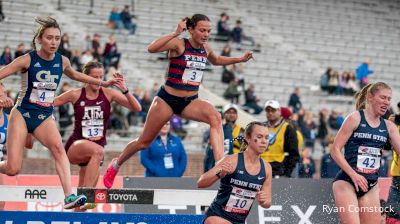 Penn Relays 2024 Results On Day 1: See Who Won
Penn Relays 2024 Results On Day 1: See Who WonApr 25, 2024
 Collin Gilstrap Bursts From Fifth To Win College Men's 1500M At Penn Relays
Collin Gilstrap Bursts From Fifth To Win College Men's 1500M At Penn RelaysApr 25, 2024
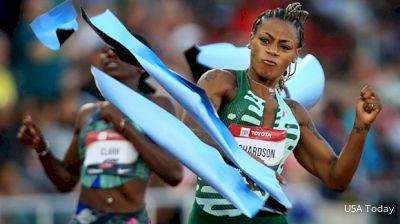 Sha'Carri Richardson, Christian Coleman Set For Wanda DL Shanghai/Suzhou
Sha'Carri Richardson, Christian Coleman Set For Wanda DL Shanghai/SuzhouApr 25, 2024
 Penn Relays Location Is Also The Home To The Best Cheesesteaks In America
Penn Relays Location Is Also The Home To The Best Cheesesteaks In AmericaApr 25, 2024
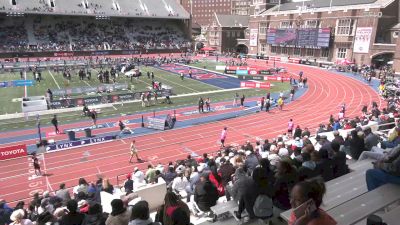 Pro Men's 4x100m Relay Special Olympics, Event 116, Finals 1
Pro Men's 4x100m Relay Special Olympics, Event 116, Finals 1Apr 25, 2024
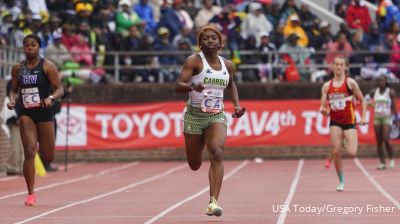 Penn Relays 2024 Schedule Day 1: Here Are Today's Events
Penn Relays 2024 Schedule Day 1: Here Are Today's EventsApr 25, 2024
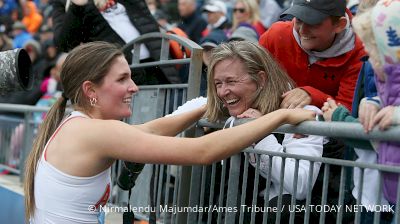 The Drake Relays Are This Weekend In Des Moines. Here's What To Know
The Drake Relays Are This Weekend In Des Moines. Here's What To KnowApr 24, 2024
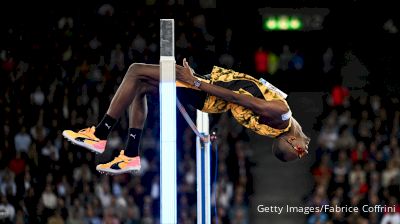 How To Watch The Diamond League Shanghai / Suzhou 2024
How To Watch The Diamond League Shanghai / Suzhou 2024Apr 24, 2024
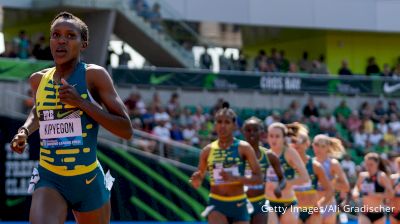 Diamond League Shanghai / Suzhou 2024 Schedule: What To Know
Diamond League Shanghai / Suzhou 2024 Schedule: What To KnowApr 24, 2024